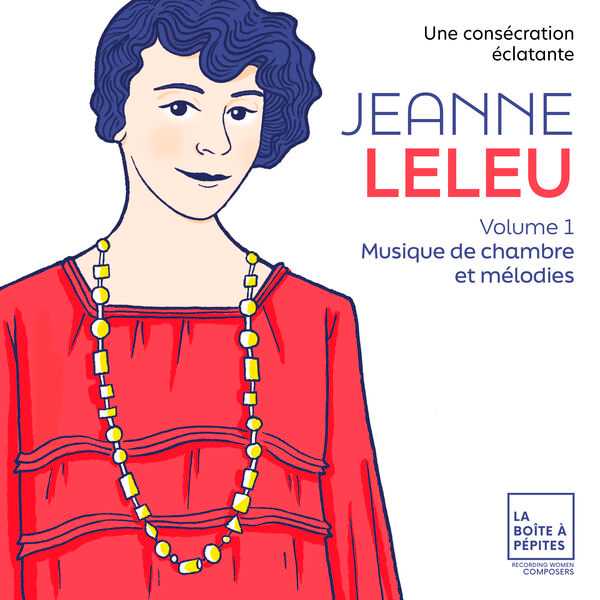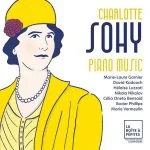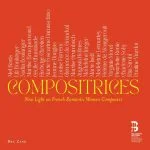

Composer: Jeanne Leleu
Performer: Marie-Laure Garnier, Alexandre Pascal, Léa Hennino, Heloïse Luzzati
Format: FLAC (tracks)
Label: La Boîte à Pépites
Catalogue: BAP06
Release: 2024
Size: 1.06 GB
Recovery: +3%
Scan: yes
Quatuor pour violon, alto, violoncelle et piano
01. I. Très lent – Vif
02. II. Lent
03. III. Allegro
Six Sonnets de Michel-Ange
04. No. 1, Tout ce qu’un grand artiste
05. No. 2, Vos beaux yeux me font voir
06. No. 3, Fuyez, amants, fuyez l’amour
07. No. 4, Qu’il est doux, le festin de ces fleurs
08. No. 5, Ils sont rompus, ces liens
09. No. 6, C’est ici que mon unique bien
En Italie
10. III. Au théâtre des marionnettes. À l’aise, d’une manière un peu mécanique
11. V. Sérénade de Pulcinella. Vif et léger
12. VII. Le Dimanche dans une osteria. Assez animé, lourdement
13. IV. Les Compagnons de saint François. Lentement, et avec infiniment de douceur
“[The winner of the] Grand Prix de Rome for composition in 1923, Jeanne Leleu deserves a dazzling triumph that any other country apart from ours would have already brilliantly accorded her.” – Le Monde (April 30, 1947)
A child prodigy and virtuoso at the piano, Jeanne Leleu was chosen to premiere Ravel’s famous piece ‘Ma mère l’Oye’ at the age of eleven.
A brilliant composer, she wrote many masterpieces, songs, chamber music, ballets and symphonic works. Her pieces were performed at the Paris Opera and by the most important orchestras of her time, and she was unanimously acclaimed by her peers and by the critics.
This first volume, devoted to her youthful works, will allow listeners to rediscover a major, unjustly forgotten figure in 20th century music.
The small label La boîte à pépites investigates the music of women composers, all of them so far from France. Introduced by appealing cover drawings, they explore a single composer in depth, often devoting more than one volume to the same figure. Here, Jeanne Leleu is featured on the first volume of what is to become a multi-volume series. The songs and chamber music here are early works, but they already reveal a distinctive voice from Leleu, who, as a child piano prodigy, gave the world premiere of Ravel’s Ma mère l’oye and won the Prix de Rome in 1923 for her cantata Béatrix. There is little evidence of contemporary trends, but neither is Leleu’s music derivative of anyone else’s. The opening Quartet for violin, viola, cello, and piano has a lovely quiet and lyrical tone sustained over its three movements. Perhaps the highlights are the Six Sonnets de Michel-Ange (“Six Sonnets of Michelangelo”), which also exist in an orchestral version; they receive standout performances from soprano Marie-Laure Garnier, who is agile in catching the turns Leleu brings to the sonnet form. The finale En Italie piano pieces are colorful programmatic works, never obvious. Pianist Célia Oneto Bensaid and the other performers deliver clean readings, keeping in mind the label’s goal of putting the composer at the center of each release. One anxiously awaits further volumes devoted to Leleu, who wrote a good deal of music in larger forms.



